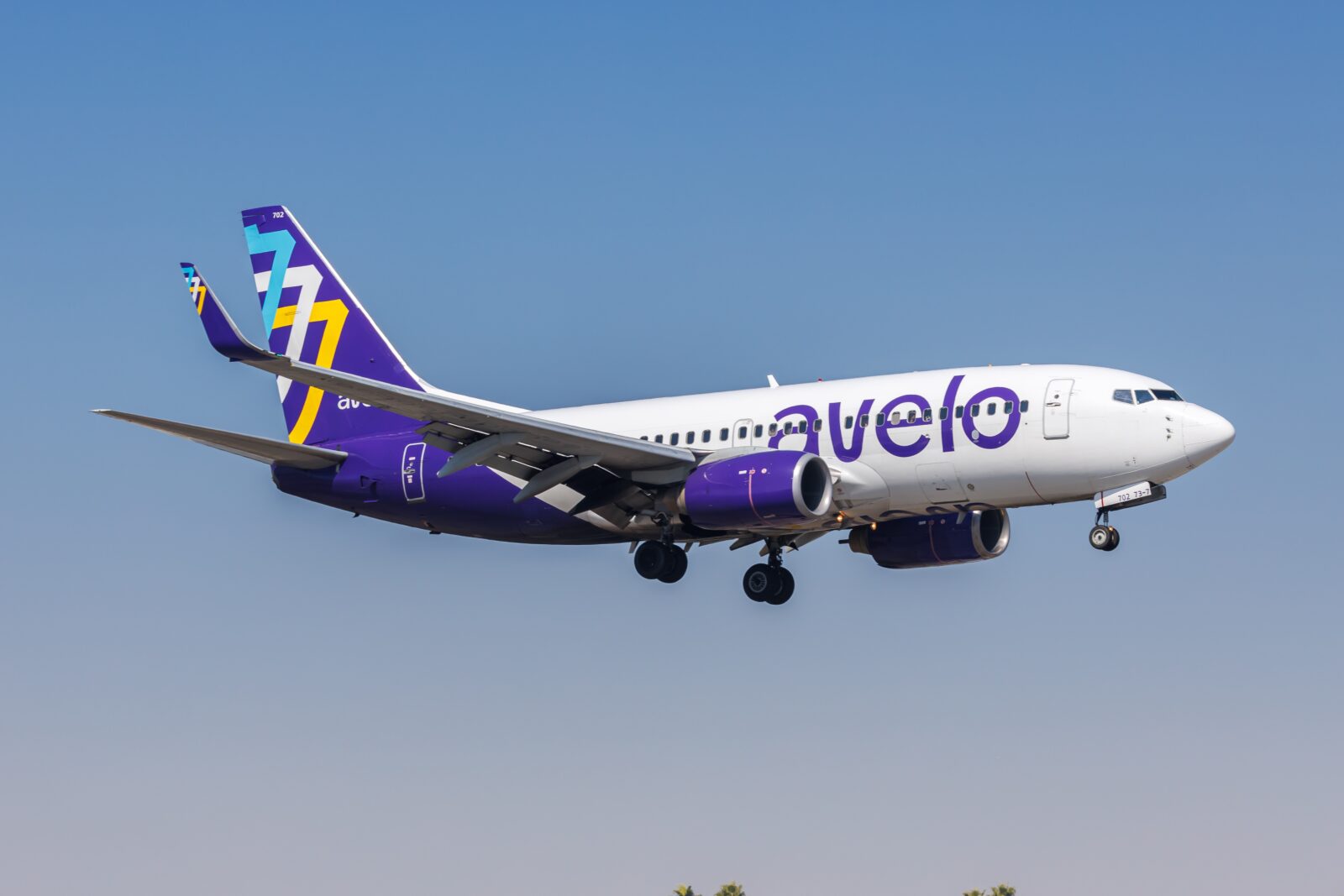
A relatively unknown ultra-low-cost airline that has managed to carve out a market for itself by flying to underserved airports across the United States has suddenly become a household name after its chief executive, Andrew Levy, revealed that the carrier had signed a deportation contract with the Department of Homeland Security’s Immigration and Customs Enforcement (ICE) agency.
Based in Houston, Texas, Levy launched Avelo Airlines in the midst of the pandemic after he acquired a defunct charter operator that had retained just one aging Boeing 737-400 to keep its Federal Aviation Administration (FAA) scheduled air carrier license.
Avelo Airlines started with just three Boeing 737s, serving 11 destinations from Burbank, California, but in the last few years, Levy and his team of serial aviation entrepreneurs have grown the airline to a fleet of 20 aircraft serving airports across both the East and West Coasts of the US.
While Avelo Airlines remains committed to growing as a regularly scheduled airline, Levy has explained that his team decided to sign the controversial deportation contract with ICE to secure sure-fire additional revenue.
As Levy explained in a statement: “After significant deliberations, we determined this charter flying will provide us with the stability to continue expanding our core scheduled passenger service and keep our 1,100 crewmembers employed for years to come.”
Avelo intends to use three of its Boeing 737-800s for the deportation charter operation out of Mesa Gateway Airport in Arizona, where up to 189 deportees per flight can be flown to ICE facilities across the United States, as well as overseas to their final destination.
While Levy expected the contract to be controversial, it remains unclear whether he and his executive team expected quite as much pushback, including threats of a boycott by customers furious with Avelo’s moneymaking move.
The largest flight attendant union in the United States, which represents crew members at Avelo, has urged Levy to urgently reconsider the decision, saying that deportation flights are not only inhumane but that the contract has already caused “reputational damage” to the airline.
In a resolution passed by the Association of Flight Attendants (AFA-CWA), its board of directors said the union would stand behind any of its members who took action based on their morals surrounding deportation flights.
Levy has attempted to quell the growing unrest amongst customers and its own employees, pointing out that operating deportation flights isn’t anything new for Avelo. In fact, the airline operated a small number of deportation flights for the Biden administration.
This is, however, the first time that Avelo has signed a long-term contract with ICE, and in order to address the concerns of flight attendants who might object on moral grounds to operating these kinds of flights, the airline intends to hire crew members specifically for the deportation charter service.
Existing flight attendants will, though, be given first dibs at relocating to the deportation base in Mesa – a potentially lucrative, well-paid opportunity.
The flight attendant union remains steadfast in its opposition to the deportation contract, saying that airlines could get themselves unwittingly involved in the illegal removal of lawful U.S. residents.
The union is also concerned about the condition that deportees might be held in, accusing the Trump administration of “a pattern of inhumane and illegal treatment of US citizens, lawful residents, tourists, and undocumented immigrants.”
Matt’s take
Using commercial airliners for deportations is a much cheaper alternative to military flights, but it can prove incredibly controversial, and airlines have been known to turn down huge paydays due to the reputational damage that can ensue in signing a deportation contract.
In 2022, for example, an ‘airline of last resort’ that had been tapped by the British government to deport illegal migrants to Rwanda reportedly pulled out of the contract because of the damage the deal was doing to its brand.
Spanish charter operator Privilege Style had become the last commercial airline that would agree to move asylum seekers to an off-shore facility, but following a concerted campaign by a human rights charity, the carrier ditched the contract to avoid any further fallout.
Airlines sometimes don’t, however, have much choice in the matter when one or two deportees are being carried on a regularly scheduled flight. In the UK, campaigners have long called for British Airways to refuse to transport deportees, but the airline says it is legally obligated to transport to do so.
Mateusz Maszczynski honed his skills as an international flight attendant at the most prominent airline in the Middle East and has been flying ever since... most recently for a well known European airline. Matt is passionate about the aviation industry and has become an expert in passenger experience and human-centric stories. Always keeping an ear close to the ground, Matt's industry insights, analysis and news coverage is frequently relied upon by some of the biggest names in journalism.







